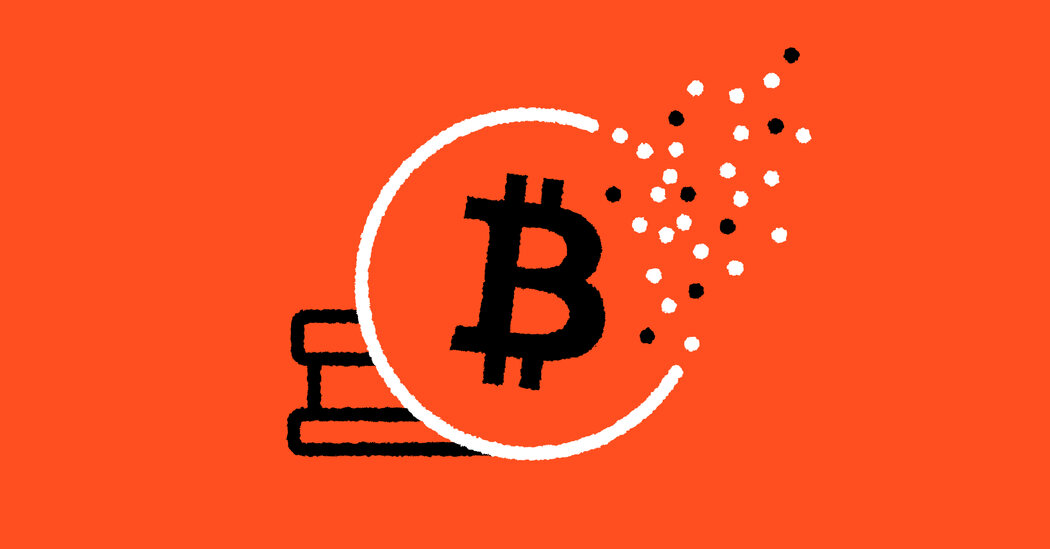How are you? (May 8-14)
Shocked confidence in crypto markets
In what some are calling a “death spiral”, the value of a number of digital currencies collapsed last week, eroding investor confidence in crypto markets. The implosion was especially crushing for TerraUSD, or UST, which is called a stablecoin, meaning it is pegged to a stable asset and not allowed to fluctuate in price. But it did fluctuate: A major sell-off in a sister cryptocurrency sent UST to an 11-cent low on Friday, as Luna, a token closely tied to UST, fell to $0. Bitcoin has fallen along with the Nasdaq, a benchmark weighted toward technology stocks, making an investment in cryptocurrency as risky as any other technology stock. The crash drives home an unpleasant reality for investors — that an asset they hoped would be transformative has failed to deliver on its promise.
Musk pauses his Twitter takeover
Elon Musk said he put his $44 billion bid to buy Twitter “temporarily on hold” as he sought more details about the platform’s share of spam and fake accounts, which Twitter estimates at around 5 percent. Mr Musk made the announcement in an early tweet on Friday, followed by another saying he was “still committed” to the deal. While it may be futile to discern the mercurial billionaire’s motives, Mr. Musk may employ a tactic to lower the price of the acquisition or consider exiting the deal altogether. The latter would be expensive: Mr. Musk’s deal with Twitter includes a $1 billion termination fee and a clause that could force Mr. Musk to pay the deal if he still has the financing. His tweets came a day after Twitter’s CEO fired two top executives, frozen most new hires and said he was cutting spending. Earlier in the week, Mr. Musk said he would allow former President Donald J. Trump to get back on the platform.
Prices continue their climb
Annual inflation slowed for the first time in months in April, but the consumer price index, which measures price changes in consumer goods and services, still rose 8.3 percent. That number is uncomfortably high for households that have struggled for months with rising prices for basic necessities such as food, fuel and housing, and it is bad news for the White House and the Federal Reserve, which have tried to stabilize the economy. The Fed may have been particularly concerned that core inflation — which excludes grocery and fuel costs — rose 0.6 percent. Policymakers are closely monitoring this measure to determine the path inflation may take in the coming months. The acceleration sparked new concerns that the Fed would take a more aggressive approach to raising interest rates.
What’s next? (May 15-21)
Wall Street is approaching a bear market
After its sixth consecutive weekly decline, the S&P 500 is on the brink of a bear market, Wall Street slang for a drop of 20 percent or more from the index’s last peak. Although the S&P 500 recovered on Friday, it was still only a handful of percentage points from bear market territory. The Nasdaq Composite, which largely reflects the performance of technology stocks, has been well in that area since early March. This steady decline in the markets shows how gloomy investors have become about the economy. Concerns about inflation, rate hikes and the ongoing pandemic abound, and investors may find in every new data point — like last week’s Consumer Price Index report — another cause for concern and a new reason to sell.
A snapshot of the expenses
Retail sales are expected to grow again for the fourth straight month as prices continue to rise across the country. Economists are likely to attribute much of the increase in spending in April to inflation, which is still at its fastest pace in decades. The March sales report found that gas station spending was up 8.9 percent, and although prices fell in April, gas is likely still going to make up a significant portion of U.S. spending. Some companies have also passed the higher production costs on to consumers, who they say are largely willing to pay the higher prices.
Getting parents back to work
As employers continue to think about how to attract employees, a new survey offers some helpful — and some would say, obvious — advice. According to a study by McKinsey & Company, the consulting firm, and Marshall Plan for Moms, a campaign focused on mothers’ economic participation. Nearly half of mothers with young children who left the labor market said so because of childcare issues.
Expand your cryptocurrency vocabulary
What else?
Jerome H. Powell was confirmed for a second term as chairman of the Federal Reserve. Instagram can go public. Disney said its streaming platform, Disney+, has added subscribers, preventing the collapse that Netflix saw weeks ago.

